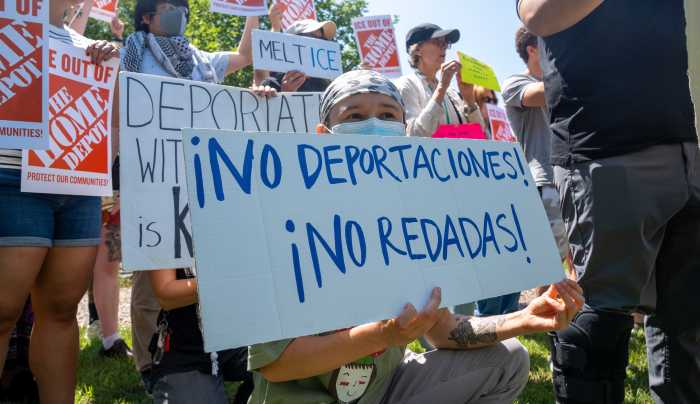Employers Will Be Hit With Payroll Tax If Bill Goes Through
The Metropolitan Transit Authority (MTA) has a slogan – “Going Your Way.” But it should possibly be changed to “Going in Your Pocket.”
The Senate Democratic Majority has agreed on a bailout of the MTA with a payroll tax that will be applied to all businesses in the areas the MTA serves including Nassau and Suffolk Counties.
Late Wednesday, Senate Democrats agreed to the framework of a bailout of the MTA before its proposed massive increases took effect. At the Senate’s demands, an outside body will conduct a forensic audit, “which will clean up the mess and fraud within the MTA,” Senate Majority Leader Malcolm Smith said Thursday. “The reform provisions in our legislation will fundamentally change the way the MTA operates and finally stop this endless cycle of threats by the MTA to raise fares and cut services every time their business practices get them in trouble.”
Included in the bailout is a 10 percent fare increase that will take effect in less than a month, on June 1. Commuters will then get hit with a 7.5 percent increase in 2011 and another 7.5 percent increase in 2013.
Instead of those who use the MTA’s services bearing the full brunt of their financial troubles, every Long Island employer will subsidize the transportation agency.
The payroll tax that had been discussed includes a tax of 34 cents per $100 of payroll. When the payroll tax was first mentioned, school officials protested, saying that adding a payroll tax to school budgets would lead to increases in property taxes. State lawmakers in Albany worked out a way whereby school districts would be reimbursed for the cost of the payroll tax.
If school districts are somehow exempt, that doesn’t mean other employers will be. “It’s outrageous,” said Republican Assemblyman Tom Alfano of the payroll tax. “In an economy that is in the tank, only this group could come up with a plan that taxes, penalizes and hurts working families, college students and business. What happened to protecting Long Island’s interests?”
What may have been holding up the payroll tax is that all Democratic senators were not on board, namely Democratic Senator Craig Johnson.
On April 14, Johnson visited Anton Newspapers to discuss the state budget. He said at the time he didn’t trust the MTA. “It seems every time there’s a problem, the MTA cries poverty and says the only way we’re going to solve it is either Albany gives us money and bails us or we’re going to raise fares and cut service. I’m not doing an acronym bailout. There’s an AIG and, for me, it’s the MTA. I’m not going to bail out the MTA with people’s tax dollars. I don’t agree with a payroll tax.”
Johnson apparently did an about face on the payroll tax. According to Rich Azzopardi, spokesman for Senator Johnson, Johnson backed the MTA bailout because language was included in the bill to provide a timely reimbursement for school districts. Azzopardi said Senator Johnson was initially opposed to the payroll tax because of the effect it would have on property taxpayers.
Even if a payroll tax were not applied to school districts, it could still affect property taxes. Municipalities could find themselves having to raise property taxes in order to pay for the payroll tax. According to Nassau County Comptroller Howard Weitzman’s office, the county would have to pay the payroll tax and Nassau County has a substantial payroll.
In addition, all employers would be responsible for the tax, which could very well be passed on to employees. According to Senate Minority Leader Dean Skelos, the $1.5 billion payroll tax would devastate businesses, local governments, hospitals, not-for-profits and others within the 12-county MTA region.
E. Christopher Murray, president of the Nassau Council of Chambers of Commerce, Inc. strongly condemns the passage of the MTA bailout. “This job tax will hurt small businesses that are already struggling and will create more unemployment,” Murray said, adding that the MTA has taken no steps to consolidate operations or any other cost saving measure but instead are relying on the taxpayers to bail it out of its self created fiscal crises.
In addition, the governor’s plan to reimburse school districts after they pay the payroll tax might never be realized since the governor would still have the authority to cut school aid to make up the difference, Skelos said.
—Carisa Giardino contributed
to this article.

































